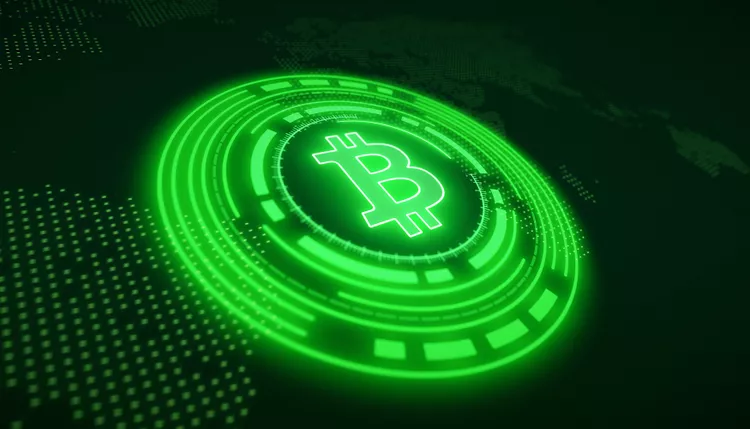Decentralized Energy Network: The Blockchain Infrastructure for Clean Power

Introduction to the Decentralized Energy Network
The global energy sector is undergoing a transformation, and one of the most revolutionary changes is the rise of the decentralized energy network. Unlike traditional centralized systems, where energy production and distribution are controlled by large corporations or governments, decentralized networks enable individuals, communities, and businesses to generate, store, and trade clean energy. This shift is powered by blockchain technology, which ensures transparency, efficiency, and trust in the system.
The Need for a Decentralized Energy Network
Traditional energy grids face significant challenges such as inefficiency, high costs, and dependence on fossil fuels. These systems are vulnerable to outages and often exclude rural or underdeveloped regions. By contrast, a decentralized energy network provides a sustainable alternative that empowers local communities to take control of their energy consumption. It eliminates unnecessary intermediaries, reduces costs, and ensures that clean power can be distributed fairly and efficiently.
How Blockchain Supports the Decentralized Energy Network
Blockchain is the backbone of the decentralized energy network. It acts as a secure digital ledger that records every transaction related to energy generation, storage, and exchange. With blockchain, peer-to-peer energy trading becomes possible. For example, homeowners with solar panels can sell excess electricity directly to their neighbors without going through a centralized utility. This transparency not only builds trust but also encourages more people to invest in renewable energy systems, accelerating the adoption of clean power worldwide.
Benefits of a Decentralized Energy Network
The advantages of implementing a decentralized energy network are extensive. First, it increases energy efficiency by reducing transmission losses. Second, it ensures greater energy security since power is generated locally and not dependent on a single centralized source. Third, it supports sustainability by promoting renewable energy sources such as solar, wind, and hydro. Finally, it provides financial benefits for individuals and businesses who can profit from their surplus energy production.
Decentralized Energy Network and Clean Power Integration
Clean power and the decentralized energy network are inseparable. As the world shifts towards renewable energy, decentralized systems make it easier to integrate solar, wind, and other clean sources into the grid. Unlike centralized infrastructures that struggle with variability in renewable production, decentralized networks balance supply and demand locally. Blockchain-based smart contracts ensure that energy is distributed efficiently and automatically, reducing waste and maximizing the use of clean power.
Peer-to-Peer Trading in the Decentralized Energy Network
One of the most exciting features of the decentralized energy network is peer-to-peer (P2P) energy trading. Instead of buying electricity from large utilities, consumers can directly purchase it from their neighbors who generate excess renewable energy. Blockchain ensures that these transactions are secure, fast, and transparent. This democratization of energy not only reduces dependency on centralized systems but also creates a new economic model where communities benefit directly from clean energy exchange.
Challenges Facing the Decentralized Energy Network
While the potential of a decentralized energy network is enormous, there are still challenges to overcome. Regulatory barriers remain a major issue, as many governments and utility companies are reluctant to lose control over energy distribution. Technological adoption is another hurdle, as not all regions have access to affordable blockchain infrastructure or renewable energy systems. Additionally, cybersecurity and data privacy must be addressed to ensure trust and safety in the network.
Future of the Decentralized Energy Network
The future of the decentralized energy network looks promising. As blockchain technology continues to mature and renewable energy costs decrease, decentralized systems will become mainstream. Smart cities will rely on these networks to power homes, businesses, and transportation. Governments are also beginning to recognize the importance of decentralized energy solutions in achieving global climate goals. In the coming years, more pilot projects and large-scale implementations will demonstrate the full potential of decentralized clean power networks.
Why Businesses Should Invest in the Decentralized Energy Network
Businesses that embrace the decentralized energy network can benefit greatly. By adopting renewable energy and blockchain-based trading, companies can reduce operational costs, improve sustainability credentials, and align with global environmental initiatives. Moreover, decentralized systems open up new revenue streams by allowing businesses to trade surplus energy. This not only strengthens corporate social responsibility but also positions businesses as leaders in the green economy.
Conclusion
The decentralized energy network represents the future of global energy. By combining blockchain technology with renewable power, it enables transparency, efficiency, and sustainability in energy distribution. Despite regulatory and technological challenges, the momentum behind decentralized systems continues to grow. As more communities and businesses adopt this innovative model, the world moves closer to achieving a clean, fair, and secure energy future. The decentralized energy network is not just a technological advancement—it is a vital step towards building a sustainable planet powered by clean energy.